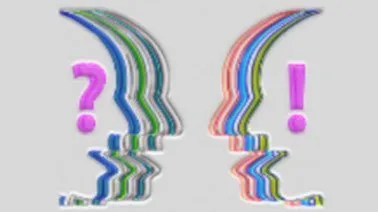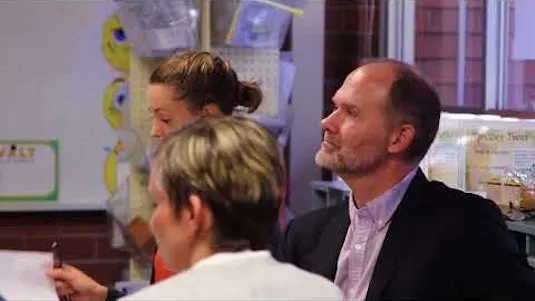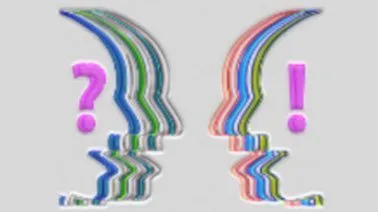
Counseling and Psychotherapy Theory 
It will cover topics such as psychodynamic, cognitive-behavioral, humanistic, and existential theories, as well as the application of these theories in practice. Students will gain an understanding of the various approaches to counseling and psychotherapy, and how to apply them in their own practice. ▼
ADVERTISEMENT
Course Feature
![]() Cost:
Cost:
Free
![]() Provider:
Provider:
Edx
![]() Certificate:
Certificate:
No Information
![]() Language:
Language:
English
![]() Start Date:
Start Date:
Self paced
Course Overview
❗The content presented here is sourced directly from Edx platform. For comprehensive course details, including enrollment information, simply click on the 'Go to class' link on our website.
Updated in [May 25th, 2023]
Counseling and Psychotherapy Theory is a course that provides learners with an understanding of the process of positive behavioral change in humans. It covers both traditional and modern theories of counseling, and provides rich case illustrations to help learners gain a better understanding of the theories. Learners will gain an understanding of the various coping methods used to address mental health issues, and how to apply them in their own lives. Additionally, learners will be able to explore online watercolor counseling, psychotherapy theory, and online skill training to further their knowledge and skills. This course is suitable for those who are interested in understanding the process of positive behavioral change, and those who want to gain a better understanding of mental health issues.
[Applications]
After completing this course, students can apply the theories and techniques learned to their own practice. They can use the knowledge to better understand the psychological processes of their clients and to develop more effective strategies for helping them. Additionally, students can use the theories to better understand their own psychological processes and to develop more effective strategies for managing their own mental health.
[Career Paths]
1. Clinical Psychologist: Clinical psychologists assess, diagnose, and treat mental, emotional, and behavioral disorders. They use a variety of techniques, such as psychotherapy, cognitive-behavioral therapy, and psychopharmacology, to help their patients. The demand for clinical psychologists is expected to grow as the population ages and more people seek mental health services.
2. Mental Health Counselor: Mental health counselors provide counseling and therapy to individuals, couples, families, and groups. They help their clients identify and work through mental health issues, such as depression, anxiety, and substance abuse. Mental health counselors are in high demand, as the need for mental health services continues to grow.
3. Marriage and Family Therapist: Marriage and family therapists provide counseling and therapy to couples and families. They help their clients identify and work through issues related to relationships, communication, and family dynamics. Marriage and family therapists are in high demand, as more couples and families seek help for their issues.
4. Psychiatric Nurse: Psychiatric nurses provide care to patients with mental health issues. They assess, diagnose, and treat mental health disorders, and provide counseling and therapy to their patients. The demand for psychiatric nurses is expected to grow as the population ages and more people seek mental health services.
[Education Paths]
1. Bachelor of Science in Psychology: A Bachelor of Science in Psychology is a four-year degree program that provides students with a comprehensive understanding of the human mind and behavior. Students will learn about the fundamentals of psychology, including research methods, cognitive processes, and psychological disorders. This degree is ideal for those interested in pursuing a career in counseling or psychotherapy.
2. Master of Science in Counseling Psychology: A Master of Science in Counseling Psychology is a two-year degree program that focuses on the application of psychological principles to the practice of counseling. Students will learn about the theories and techniques of counseling, as well as the ethical and legal considerations of the profession. This degree is ideal for those interested in becoming a licensed counselor or psychotherapist.
3. Doctor of Philosophy in Clinical Psychology: A Doctor of Philosophy in Clinical Psychology is a four-year degree program that focuses on the diagnosis and treatment of mental health disorders. Students will learn about the biological, psychological, and social aspects of mental health, as well as the assessment and treatment of mental health disorders. This degree is ideal for those interested in becoming a clinical psychologist or psychotherapist.
4. Doctor of Psychology in Counseling Psychology: A Doctor of Psychology in Counseling Psychology is a four-year degree program that focuses on the application of psychological principles to the practice of counseling. Students will learn about the theories and techniques of counseling, as well as the ethical and legal considerations of the profession. This degree is ideal for those interested in becoming a licensed counselor or psychotherapist.
Course Provider

Provider Edx's Stats at AZClass
Discussion and Reviews
0.0 (Based on 0 reviews)
Explore Similar Online Courses

Leading Transformative Change in Education

Academic English: How to Write a Thesis

Python for Informatics: Exploring Information

Social Network Analysis

Introduction to Systematic Review and Meta-Analysis

The Analytics Edge

DCO042 - Python For Informatics

Causal Diagrams: Draw Your Assumptions Before Your Conclusions

Whole genome sequencing of bacterial genomes - tools and applications

Use this PTSD Treatment Plan in Your Counseling Practice

Graphology Free Course: 7 Negative Handwriting Sign Types!

Counseling Practice and Research
 Related Categories
Related Categories
 Popular Providers
Popular Providers
Quiz
 Submitted Sucessfully
Submitted Sucessfully
1. What is the main purpose of Counseling and Psychotherapy Theory?
2. What is the main focus of Counseling and Psychotherapy Theory?
3. What is the main goal of Counseling and Psychotherapy Theory?


Start your review of Counseling and Psychotherapy Theory